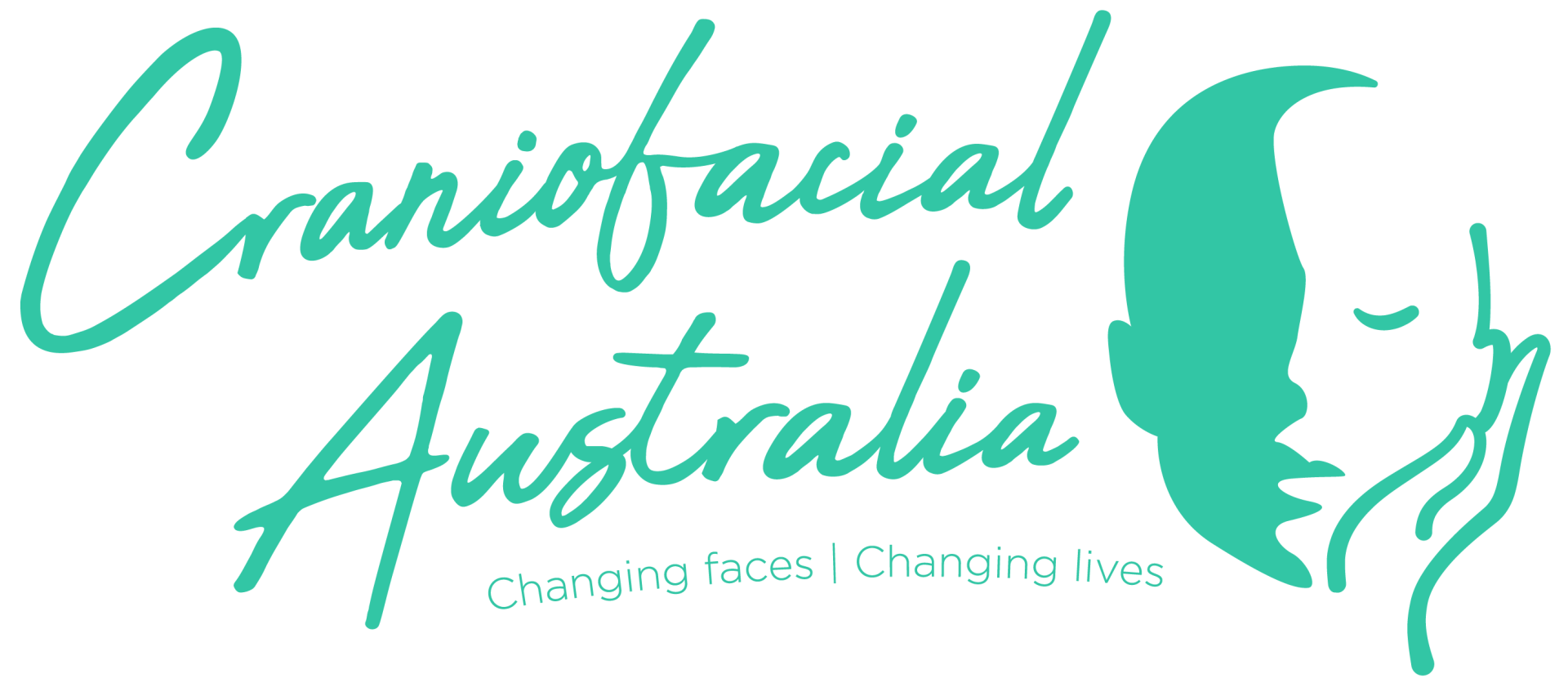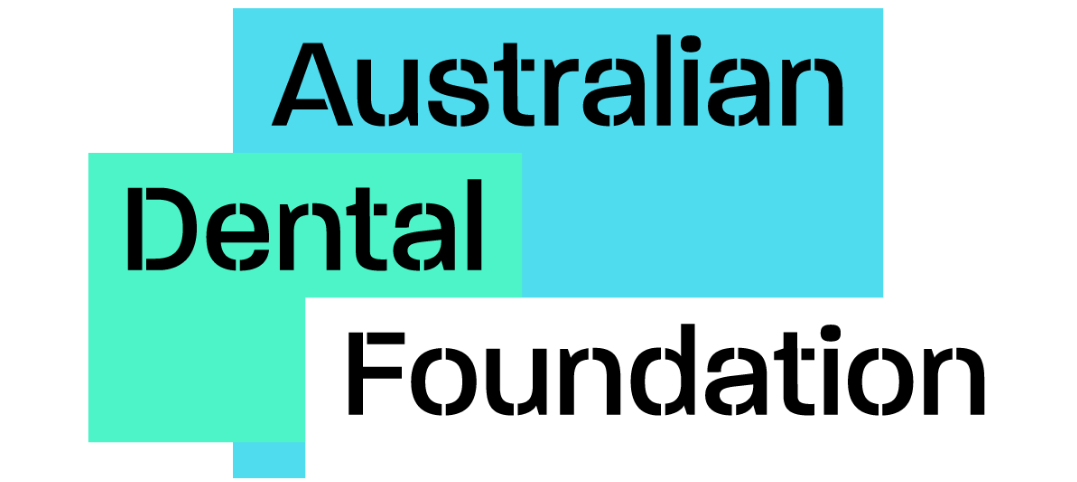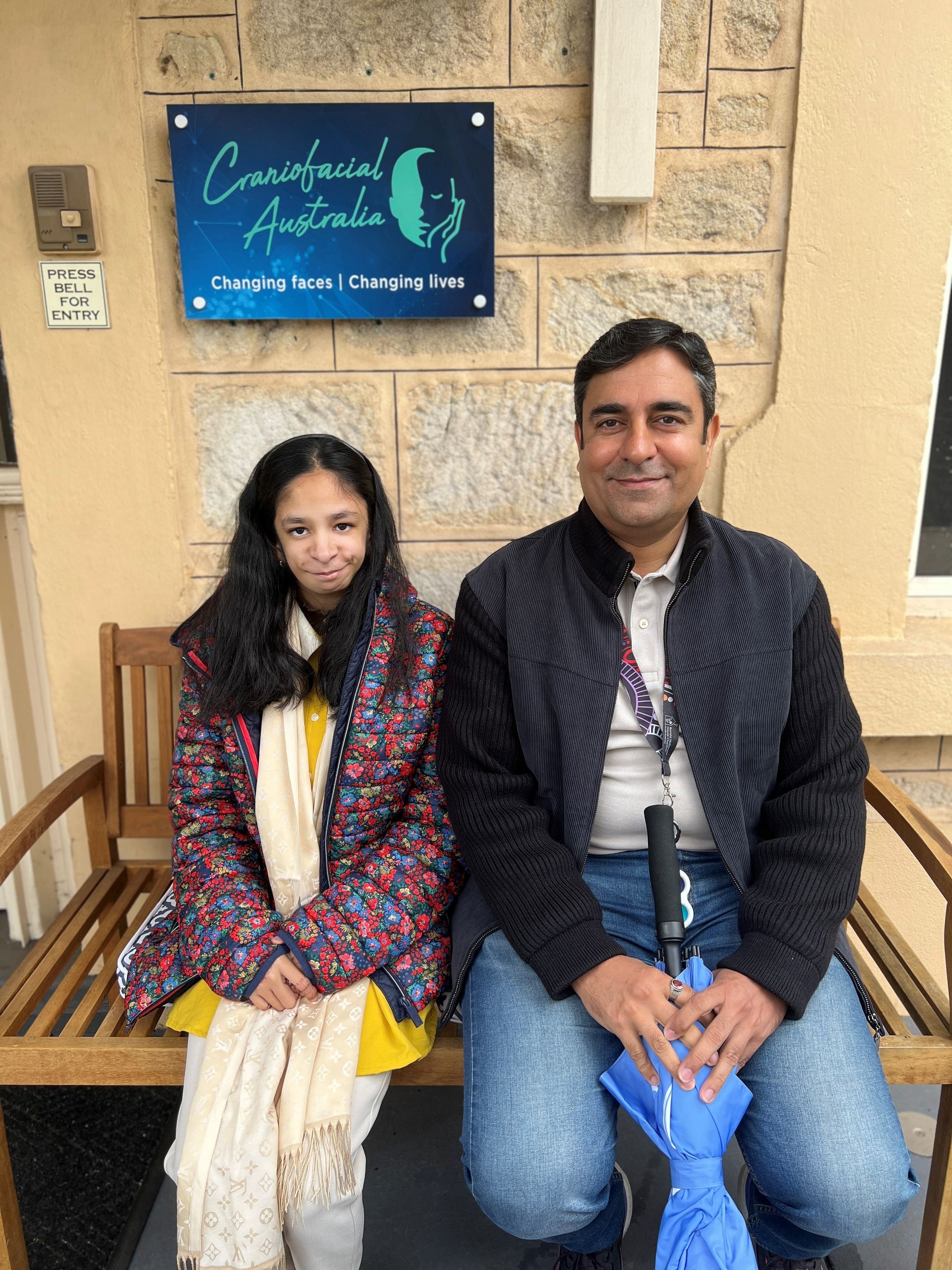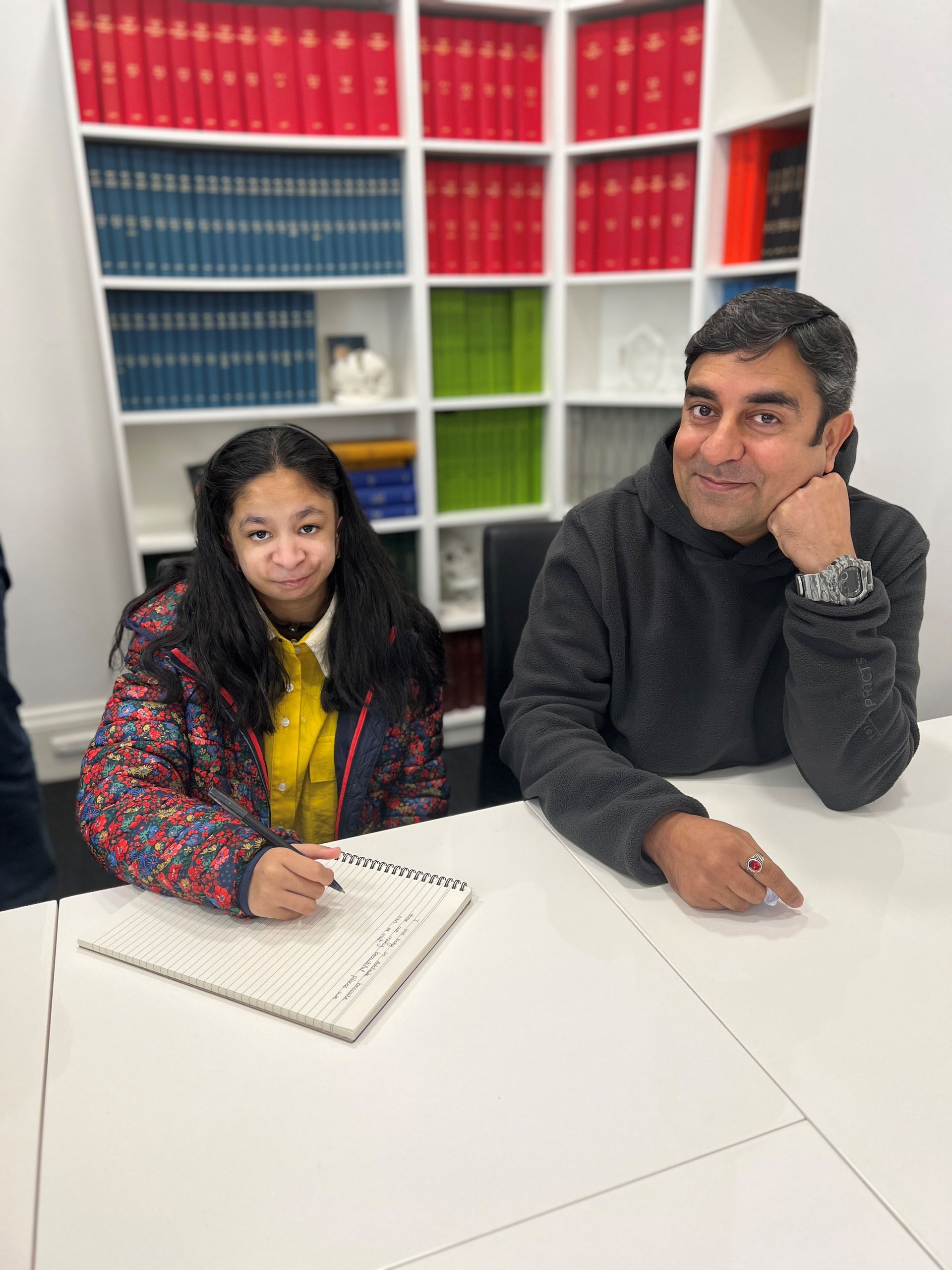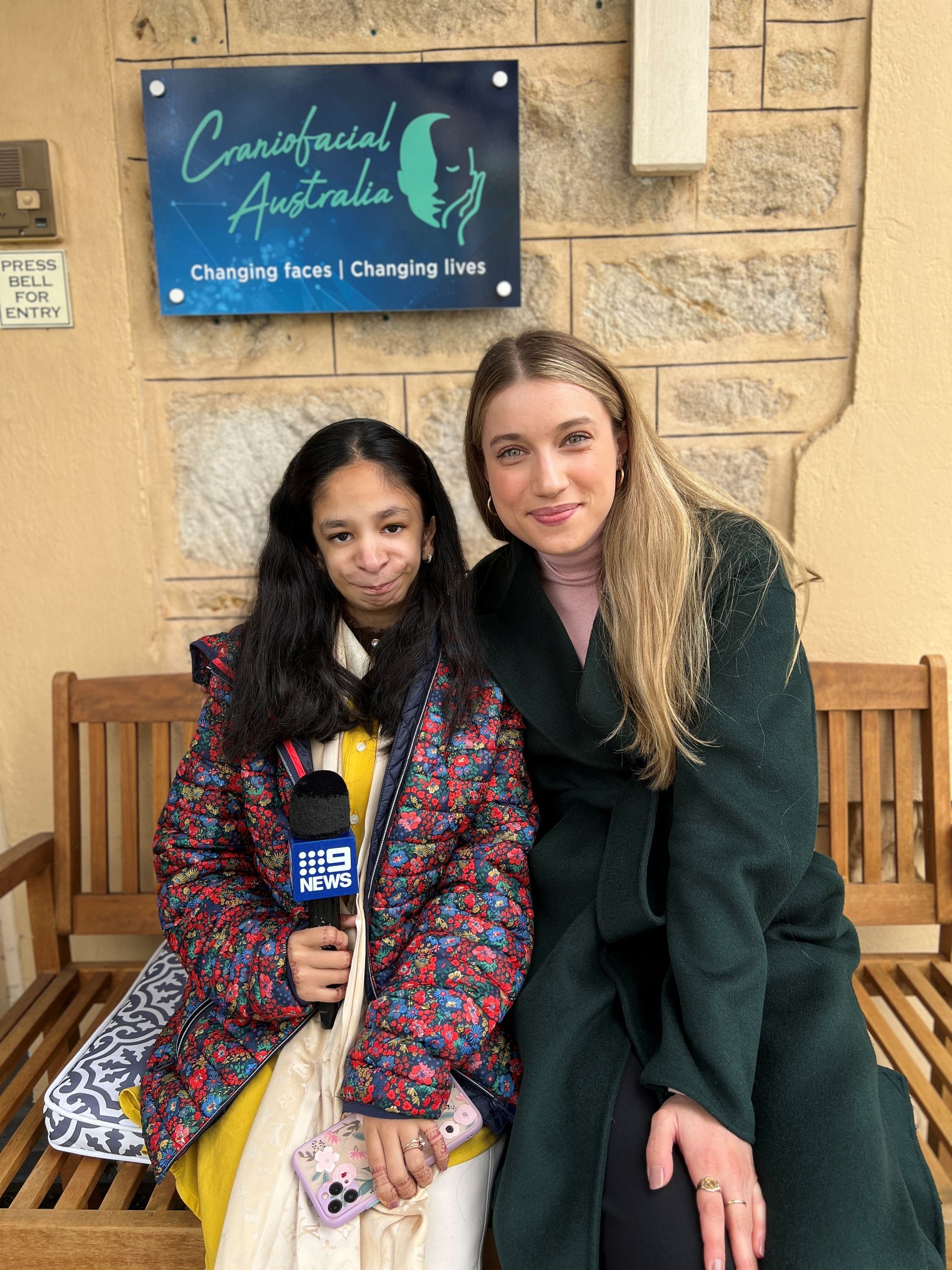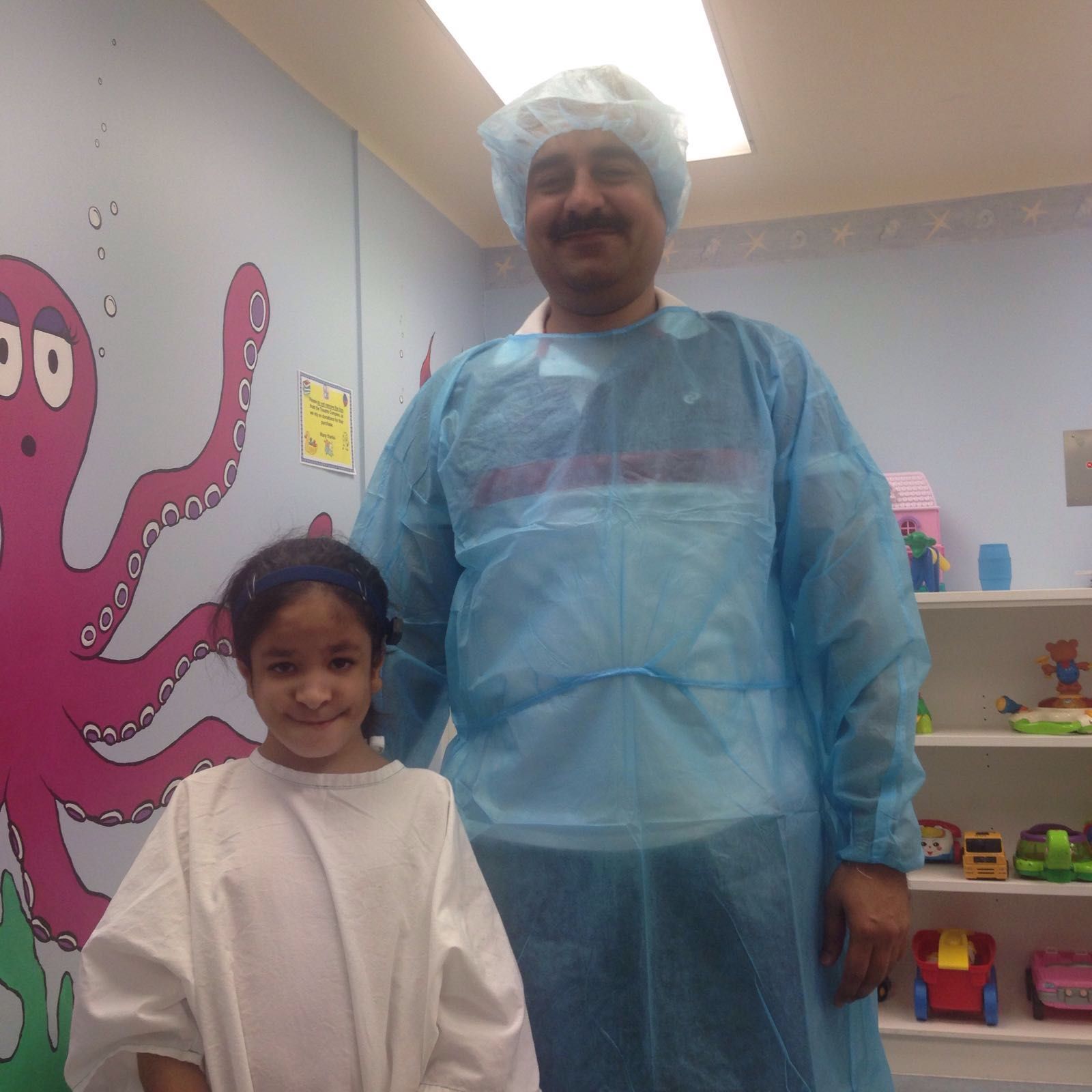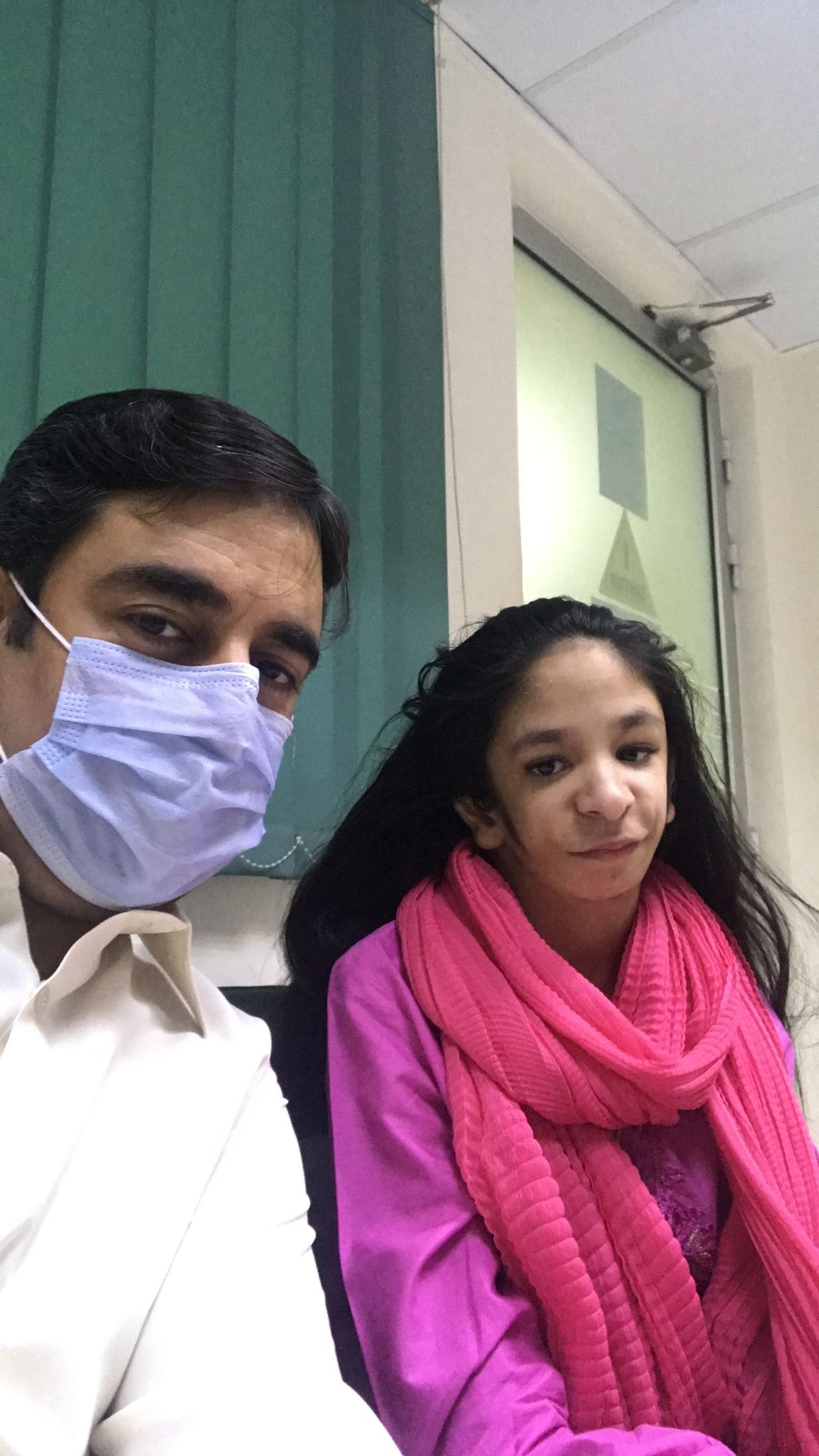Halfway Across the World -
Mariam's Journey
Pakistan-born Mariam Saleem was born with Nager Syndrome, a rare and debilitating condition that affects development of the lower face, jaw and mouth.
At 6 months, Mariam was treated for Patent Ductus Arteriosus (PDA) – a heart defect caused by problems in the heart’s development.
As a baby, Mariam had difficulty breathing and feeding due to limited jaw movement.
Dad Saleem recalls: “In my country there was not facilities and it was not even possible to get Mariam properly diagnosed. Up to that time, her jaw abnormality was not the prime focus of the family. After being examined by a Pakistani-based Maxillofacial surgeon, we were advised to delay any treatment until the age of 6. Mariam was fed through a Nasogastric Tube and spoon fed for almost two years.”
Mariam experienced frequent bouts of illness. The cost of accessing medical treatment presented the family with financial hardship.
At the age of 6, the family set out to obtain a formal diagnosis. A referral for assistance went to various Craniofacial Units around the world. The Australian Craniofacial Unit in Adelaide, headed by Professor David David AC, answered the call.
The family visited Adelaide in 2013 and met Professor David, who referred Mariam for a complete genetic assessment. Mariam was eventually diagnosed with Nager Acrofacial Dysostosis (Nager Syndrome).
► Nager syndrome is a rare condition that mainly affects the development of the face, hands and arms. The severity of this disorder varies among affected individuals.
Growing up, Mariam struggled with her self-perception. Because of this, she gradually stopped using her voice when out in public.
Saleem explains: “Due to limited jaw movement, her voice is not audible to everybody. That’s why she stopped talking.”
The family returned to Adelaide for the first stage of treatment in 2016, when Mariam underwent a mandibular distraction to clear her airways, help with her breathing, oral hygiene and speech.
► Mandibular distraction, or jaw distraction, is the name for a surgical method of lengthening a small or recessed jaw.
The next course of treatment was to take place at the age of 15, when Mariam’s facial bones matured. When this time came, the family struggled to access proper healthcare and financial assistance in Pakistan. “I couldn’t afford any of it. As a father, this was a really unimaginable thing for me.”
Saleem again tried reaching out to Prof David: “To my luck, he responded. He came to my rescue and referred me to Craniofacial Australia.”
The Saleem family found relief in Craniofacial Australia’s Patient Support program, where people living with craniofacial conditions can apply for financial assistance.
Craniofacial Australia coordinated Mariam’s treatment plan, specialist team and accommodation arrangements. Thanks to the generosity of our donors, Craniofacial Australia also subsidized travel costs for the commute to Adelaide. With a dynamic support and care team alongside her, Mariam underwent another round of surgery in Adelaide, July 2023.
“I have no words to express my gratitude for the support and kindness extended by the Foundation. I hope that Mariam will be able to lead a life like normal people.
“We are indebted to Australia, the Australian people, Craniofacial Australia and especially all donors, as without their contributions, help would not have been possible.”
We gratefully acknowledge our
donors and the following
individuals and
organisations
for the care and support of Mariam and her family:
Dr Greg Miller
Australian Dental Foundation
Ronald McDonald House Charities Adelaide
Dr Benjamin Grave
Adelaide Craniofacial Centre and Craniofacial Australia Board Member
Thank you to the Saleem family for bravely sharing their story.
Please
donate today to help other families just like the Saleems.
